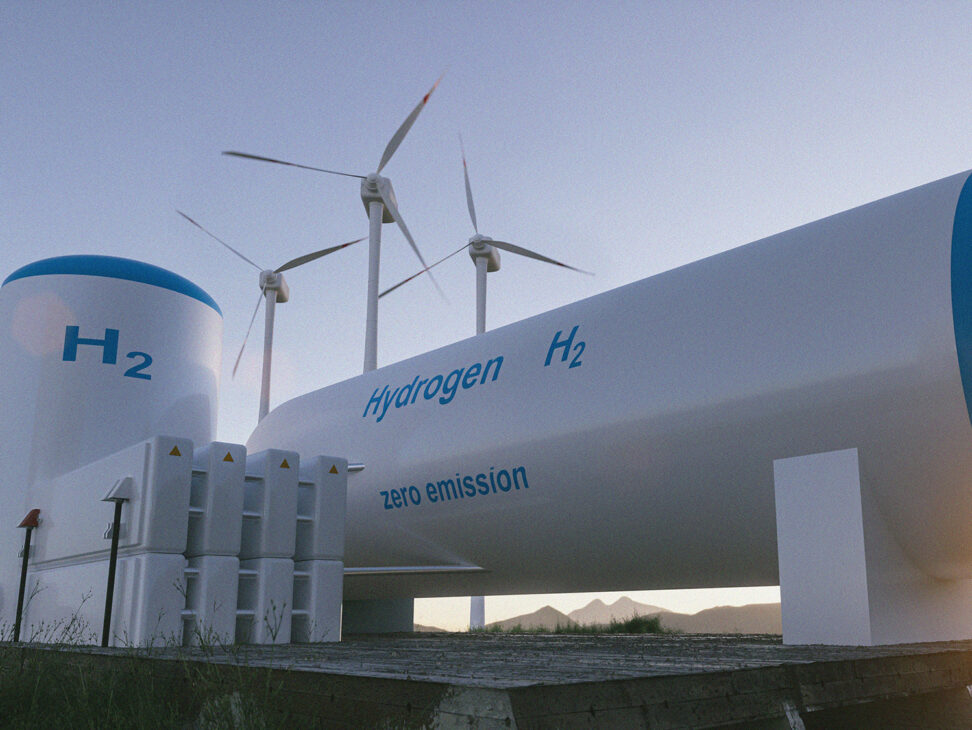Actis signs agreement with Egyptian government for green hydrogen development

- Green hydrogen to be a key enabler of the global Energy Transition, offers excellent solutions for decarbonisation
- Actis’ track record in supporting the Energy Transition in MEA was a key factor in Egyptian government’s decision
London, Cairo, 25 August 2022: Actis, a leading global investor in sustainable infrastructure, has today announced the signing of a memorandum of understanding (MoU) with the Egyptian government for green hydrogen development.
The MoU will give Actis an entry point into what could be one of the largest hydrogen markets in the region. While not alone in pursuing green hydrogen, Egypt has a comparative advantage due to its renewable resources and proximity to European and Asian markets. This opportunity is an attractive proposition for Actis as it develops its hydrogen strategy and evolves the next generation of investment platforms.
Hydrogen is widely used globally in commercial industry, for example in the production of ammonia for fertiliser, methanol for plastics and in oil refining. Currently almost all of the world’s hydrogen is produced using fossil fuels, with a significant amount of carbon dioxide emitted as a byproduct of the process.
Green hydrogen is far superior from a sustainability perspective, because it is generated by electrolysing water using renewable electricity and has zero emissions. The production cost of green hydrogen depends on two factors – the cost of renewable power and the cost of the electrolysis equipment – and is currently more expensive than fossil fuel-based hydrogen production. However, with an expected decrease in the cost of both renewable electricity and electrolysing equipment, countries such as Egypt are seizing the opportunity to lead the way.
Dr. Sherif ElKholy, Partner and Head of Middle East and Africa for Infrastructure at Actis, commented: “Today’s signing is a continuation of our commitment to Egypt where we have a 20 year track-record of investing over US$1 billion in some of the country’s most strategically important businesses and projects to become one of the leading foreign direct investors in the country. The Egyptian government has ambitious Energy Transition plans, in addition to hosting COP27 this year, and active steps are being taken to make Egypt a major hub for green hydrogen. We look forward to deepening our partnership with the Egyptian government and contributing to their 2030 renewable energy strategy through this project and others to come.”
Lisa Pinsley, Partner and Head of Middle East and Africa for Energy at Actis, added: “We expect green hydrogen to be a key enabler of the global Energy Transition. For industry and certain hard to abate sectors it offers an excellent and sustainable solution for decarbonisation. I’m excited that Actis is signing an agreement to explore green hydrogen development opportunities with the Egyptian government as it aligns closely with Actis’ long-term strategy to mobilise capital behind the drive to Net Zero and to build sustainability leaders to support a Just Transition for the countries and communities where we invest.”
Actis is a leader in investing capital to accelerate the Energy Transition with over 70 renewable energy projects to date, generating approximately 11GW of renewable energy globally. Recent highlights include the sale of Sprng Energy, one of India’s largest renewable energy companies, to Shell; the launch of Rezolv, a Central and South Eastern Europe renewables platform; the signing of an agreement to acquire a controlling stake in Yellow Door Energy, a leading MEA focused distributed solar C&I platform; and the acquisition of a majority stake in Southeast Asia renewables platform, Levanta renewables, targeting 1.5GW of renewable energy capacity.
Additionally, in July Actis announced an investment in Omega Energia, the largest publicly listed pure-play renewable energy generation company in Latin America and, in June, the launch of a gas power generation business, Bridgin Power, dedicated to delivering an equitable Energy Transition in Southeast Asia.